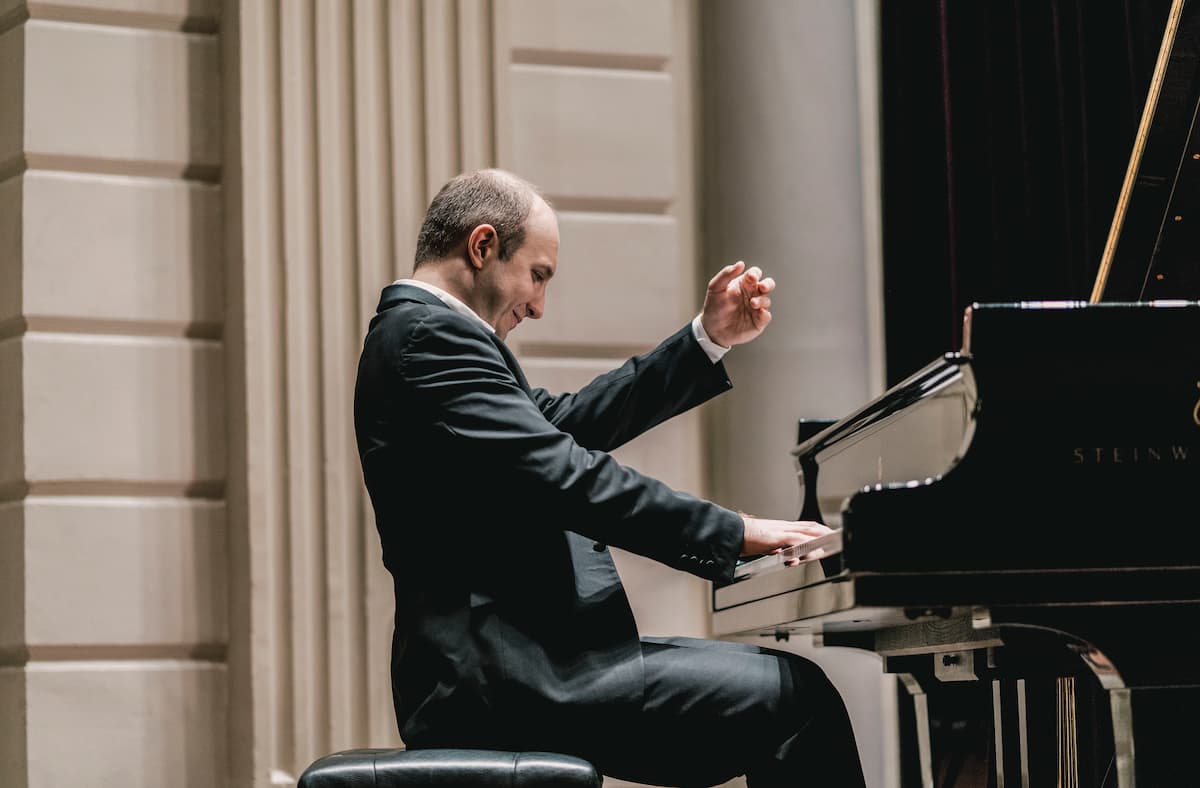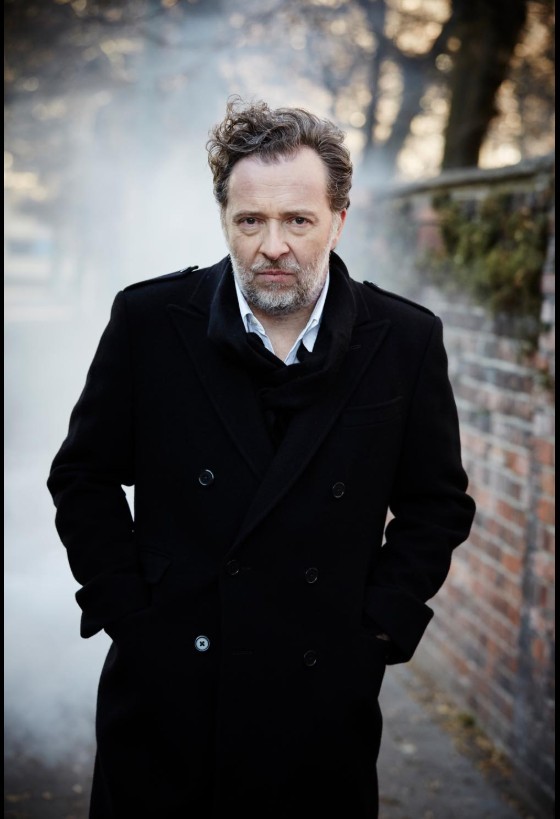Appointed artist-in-residence at the Wigmore Hall for the 2023/24 season, Ukrainian-born Australian pianist Alexander Gavrylyuk stands out as one of the most promising pianists of his generation – I mean, you have to be pretty good to receive standing ovations and cheering at this hall.

Alexander Gavrylyuk © Marco Borggreve
The recital started with Mozart’s Rondo in D major, K.485, wherein runs were scintillating, tonal colours crystalline and dynamic gradations subtly layered. The finely crafted phrases and deftly controlled contrasts further added to the sense of classicism and proportion in Gavrylyuk’s playing.
The dramaturgy in the ensuing Chopin Ballade No. 2 in F major, Op. 38 was breathtaking, to say the least. It began with quietude (the voicing of chords could have been more careful, though), while the tumultuous outpouring in the second section erupted without any foreshadowing. Gavrylyuk really gave his all, producing resounding sonorities from the Steinway and conjuring such anguish and a palpable sense of urgency that literally gave one palpitations. The next piece, Chopin’s Nocturne in C minor, Op. 48 No. 1, was less convincing nevertheless, with its climax arriving somewhat prematurely before the doppio movimento section.
By contrast, the Fantaisie-Impromptu by Chopin was a sheer delight. Far too often, the quasi-improvisational quality of the piece is lost, but not here – it never sounded premeditated as Gavrylyuk teased out the inner voices, executed the flourishes with effortless filigree and essentially breathed new life into this oft-played work.
Technically precipitous and intensely dramatic, his Chopin Scherzo No. 1 in B minor was surely electrifying but had much more than superficial bravura. The underlying agony that had to do with the plight of Chopin’s homeland was unleashed in full throttle, with the idyllic central section radiating embracing warmth in Gavrylyuk’s hands, only to be shattered by the final apocalypse.

Alexander Gavrylyuk performing © Marco Borggreve
Following the intermission were Debussy’s two Arabesques. The first Arabesque was as meditative as one would have expected, with an airy and luminous ambience, while the second brimmed with playful agility.
The main course of the evening, Rachmaninoff’s Piano Sonata No. 2 in B-flat minor, again began in an emphatically bold manner. To say Gavrylyuk’s playing was “passionate” was an understatement – at times, the hall seemed to reverberate with thunderous intensity, while the bell-like sonorities filled the room at other times. Form and direction were made clear yet nuances were carefully wrought, weaving a coherent narrative arc. The second movement, Non allegro, was characterised by prayer-like serenity, unfurled with growing tension, and found its home in a contemplative state, though the build-up could have been paced more discreetly to confer even greater weight to the climax. A display of formidable pianism, the finale was once again heart-stopping as excruciating pain and yearning eventually gave way to the truly triumphal ending on a grand scale.
The Wigmore audience gave one of the most ebullient responses in a while and received a generous offering of four encores in return. All commenced in C-sharp or D-flat, in no way coincidental, including Brahms Intermezzo in B-flat minor, Op. 117 No. 2, Rachmaninoff-Kocsis Vocalise, Scriabin Etude in C-sharp minor, Op. 2 No. 1 and Chopin Nocturne in D-flat major, Op. 27 No. 2. In particular, the theme of the Vocalise unfolded with such tenderness as the arpeggios shimmered, while the Nocturne brought the evening to a satisfyingly meditative conclusion.
For more of the best in classical music, sign up for our E-Newsletter
Rachmaninoff-Kocsis: Vocalise (Alexander Gavrylyuk, piano)


